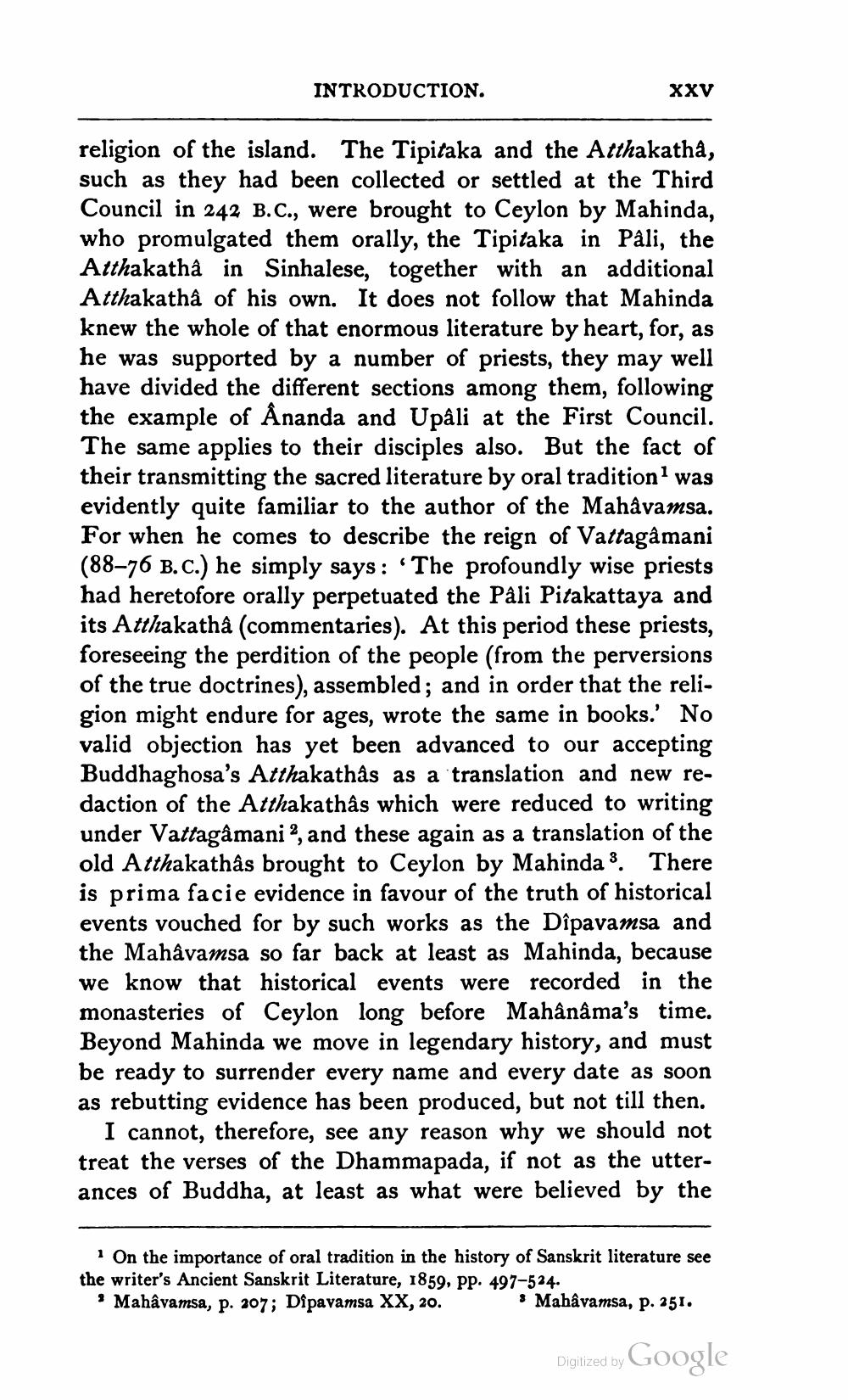________________
INTRODUCTION.
XXV
religion of the island. The Tipitaka and the Atthakatha, such as they had been collected or settled at the Third Council in 242 B.C., were brought to Ceylon by Mahinda, who promulgated them orally, the Tipitaka in Pali, the Atthakathâ in Sinhalese, together with an additional Atthakathâ of his own. It does not follow that Mahinda knew the whole of that enormous literature by heart, for, as he was supported by a number of priests, they may well have divided the different sections among them, following the example of Ånanda and Upâli at the First Council. The same applies to their disciples also. But the fact of their transmitting the sacred literature by oral tradition was evidently quite familiar to the author of the Mahavamsa. For when he comes to describe the reign of Vattagamani (88–76 B.C.) he simply says: "The profoundly wise priests had heretofore orally perpetuated the Pali Pitakattaya and its Atthakatha (commentaries). At this period these priests, foreseeing the perdition of the people (from the perversions of the true doctrines), assembled; and in order that the religion might endure for ages, wrote the same in books. No valid objection has yet been advanced to our accepting Buddhaghosa's Atthakathâs as a translation and new redaction of the Atthakathâs which were reduced to writing under Vattagamani, and these again as a translation of the old Atthakathâs brought to Ceylon by Mahinda 3. There is prima facie evidence in favour of the truth of historical events vouched for by such works as the Dîpavamsa and the Mahavamsa so far back at least as Mahinda, because we know that historical events were recorded in the monasteries of Ceylon long before Mahânâma's time. Beyond Mahinda we move in legendary history, and must be ready to surrender every name and every date as soon as rebutting evidence has been produced, but not till then.
I cannot, therefore, see any reason why we should not treat the verses of the Dhammapada, if not as the utterances of Buddha, at least as what were believed by the
i On the importance of oral tradition in the history of Sanskrit literature see the writer's Ancient Sanskrit Literature, 1859, pp. 497-524.
: Mahâvamsa, p. 207; Dipavamsa XX, 20. * Mahavamsa, p. 251.
Digitized by Google




